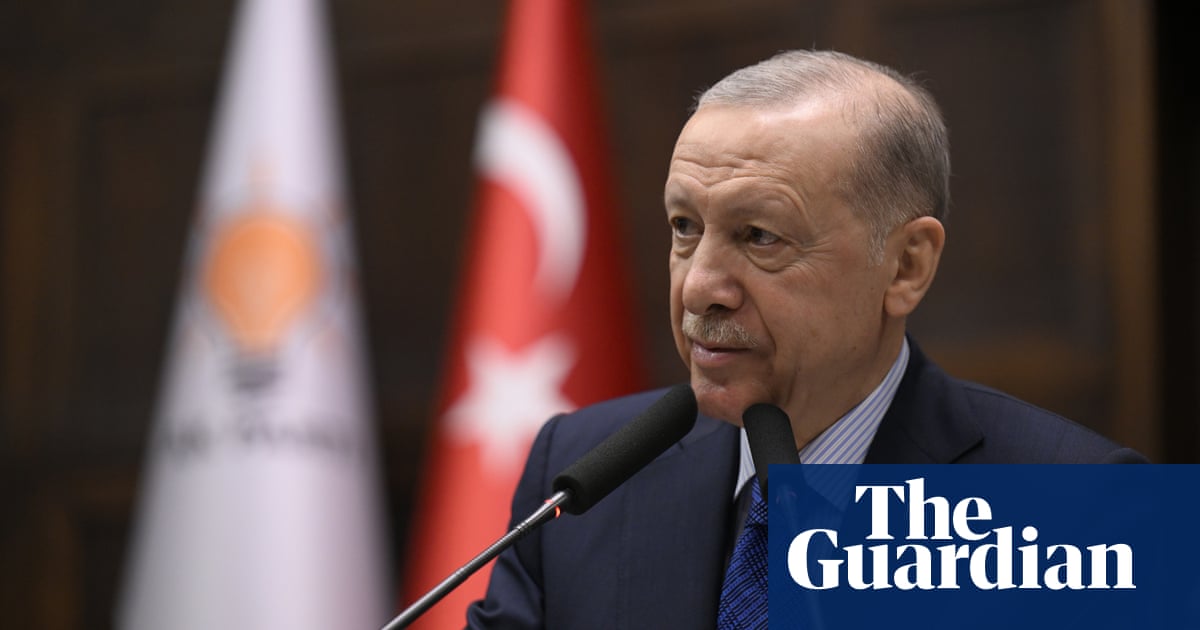A Turkish court has handed a Swedish journalist an 11-month suspended sentence for insulting the president,Recep Tayyip Erdoğan, but he remains behind bars awaiting trial on a second more serious charge.
Joakim Medin, who works for the Swedish newspaper Dagens ETC, was detained at Istanbul airport on 27 March when he flew in to cover themass protests gripping Turkey.
He was arrested on two separate charges: insulting the president and belonging to a terror organisation, and jailed a day later at Silivri prison in Istanbul.
After handing Medin the suspended sentence, the judge ordered his release, according to the correspondent and MLSA, the Turkish rights group defending him.
But because ofthe second charge he is facing– for which a trial date has not yet been set – Medin will remain behind bars.
Prosecutors say Medin attended a protest in Stockholm in January 2023 where protesters strung up an effigy of Erdoğan. That effigy reappeared months later, holding an LGBTQ flag on a Kurdish activists’ float at Stockholm’s Pride parade.
According to the indictment, which Medin said he had not seen, the offending images were used to illustrate several of his articles that he had posted online.
Addressing the court via video link from Silivri prison, Medin said he had not been inSwedenat the time of January rally.
Although he posted links to articles he had written about Sweden’s Nato accession – which was initially blocked byTurkey– he said he was not responsible for the photo selection.
“I was not at this event, I was in Germany for work. I didn’t know about plans for his event, and I didn’t share any photo or video about it on social media,” Medin told the court via video link.
“I did not insult the president. I was assigned to write the article. The photo was selected by editors, I was just doing my job,” he said, asking to be released so he could return to his wife, who is seven months pregnant with their first child.
His lawyer, Veysel Ok, urged the court to acquit him.
“Medin has no motivation to knowingly and willingly insult the president. The Nato process was vital for Sweden because a Russian attack was on the agenda; my client reported on this process,” Ok told the court.
Sign up toThis is Europe
The most pressing stories and debates for Europeans – from identity to economics to the environment
after newsletter promotion
“He has nothing to do with the photos; he just shared the news. I demand my client’s acquittal,” the lawyer added.
Many people, from teenagers to journalists and even a former Miss Turkey, have been charged with insulting the president, an offence often used to muffle dissent.
Because of the second charge against him, Medin will remain in prison until a trial date is set.
“It’s undemocratic he was convicted in this first case and we deeply regret that the decision to free him isn’t enough to ensure his release today because of the second case,” said Erol Önderoğlu from Reporters Without Borders.
“We urge the Turkish authorities to release the journalist, to quickly set a date for the second trial and drop the charges,” he said.
The charge of belonging to a terror organisation is much more serious. If convicted, Medin could face up to nine years in prison. He denies the charges.
